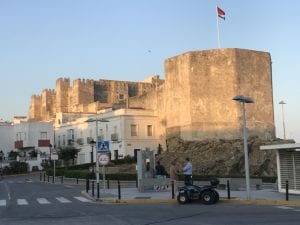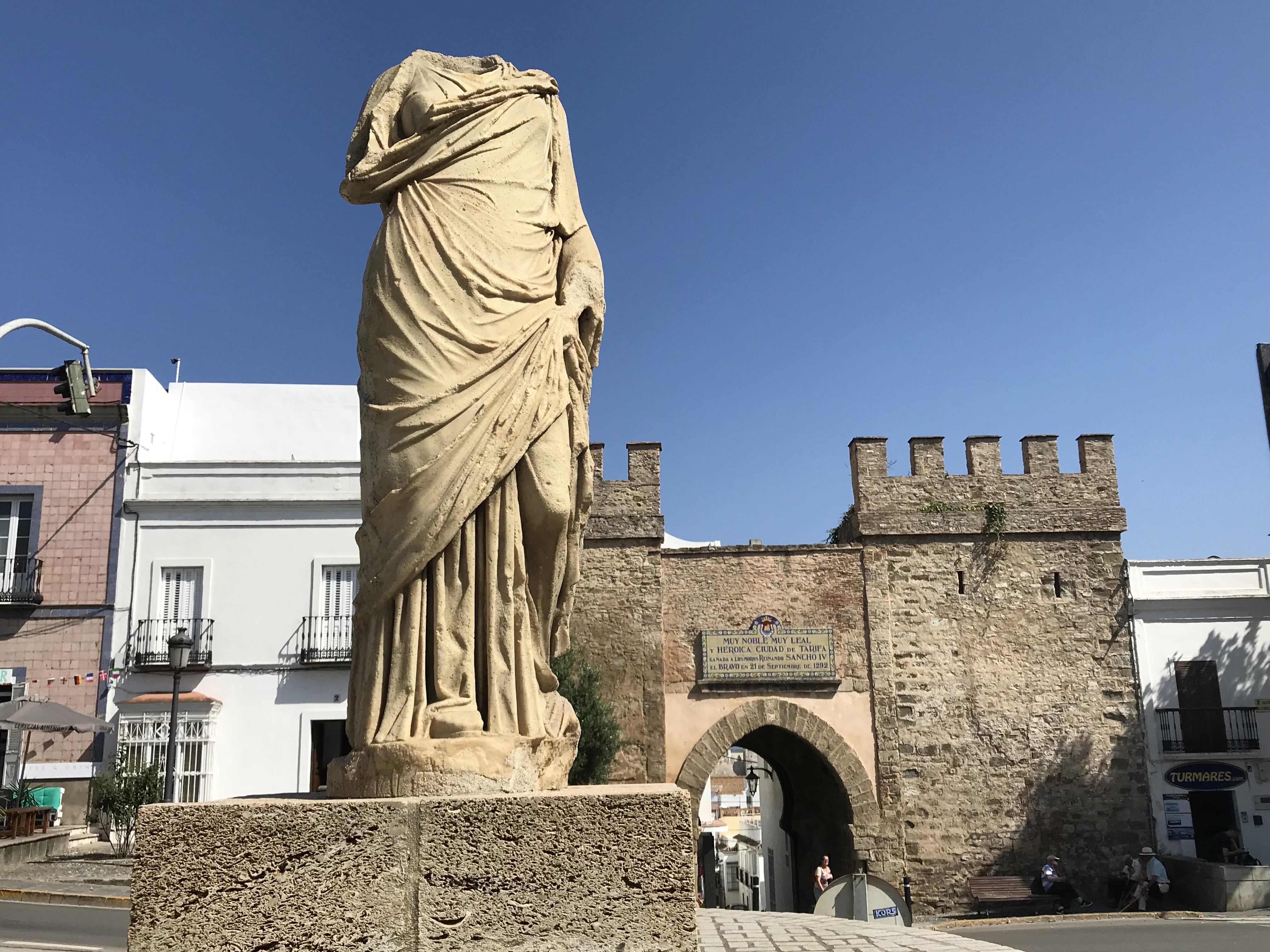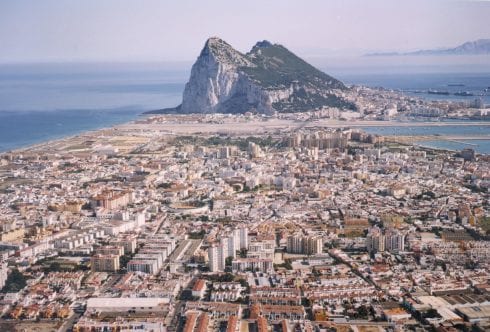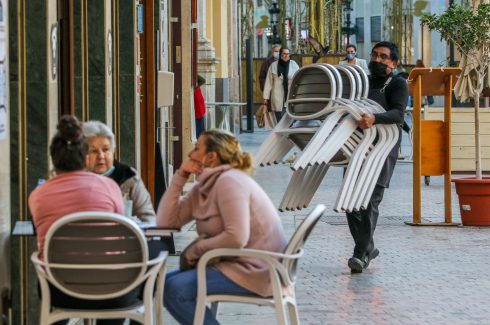 FLUORESCENT kites accentuate its bright blue skies, Caribbean-style beaches bring the wow factor, while the stiff Atlantic breezes will hopefully not sweep you off your feet.
FLUORESCENT kites accentuate its bright blue skies, Caribbean-style beaches bring the wow factor, while the stiff Atlantic breezes will hopefully not sweep you off your feet.
Welcome to Tarifa, the wind and kite surfers’ paradise that is unique in Andalucia (and pretty much Spain) for its hip, international vibe and deep layers of history.
The star of the Costa de la Luz – or Coast of Light – that stretches from here to Cadiz (and technically all the way through Huelva to Portugal), Tarifa is unrivalled for its kilometres of sweeping white sandy beaches, which seem a million miles away from its easterly Costa del Sol neighbour.
It’s no surprise that those-in-the-know from around Spain flock to the hotspot as soon as the summer season begins.
But there’s more to this ancient Moorish town than surfing and beaches and its old quarter is truly a treat.
Entering via a medieval archway, its cobbled streets and whitewashed buildings are overlaid with a tangible north-African vibe that could easily pass for Chefchaouen or Essaouira.
Handbags and hippy scarves hang in the doorways of fashion boutiques while the trendy bars and quality restaurants will engage you for hours.
 Having everything a town could want paired with glorious beaches, it’s no wonder Tarifa has been constantly fought over.
Having everything a town could want paired with glorious beaches, it’s no wonder Tarifa has been constantly fought over.
Romans first settled near the town (you can still visit the Roman ruins in nearby Bolonia) before it was taken over in an attack by the Moors, led by Berber military commander Tarif ibn Malik in 710.
After the Islamic conquest of Spain, the city became increasingly more fortified before becoming part of the Kingdom of Granada.
In 1292 it was conquered back by the Christians in the shape and form of Sancho IV of Castile before resisting several sieges and invasion attempts over the centuries.

The Peninsular War saw Tarifa besieged again, this time by French troops in 1810, and again in December 1811 when General Laval demanded surrender after bombarding it over Christmas. Both the British and Spanish commanders refused and their defiance was rewarded by torrential rain the next day. By Three Kings night (January 5) the French realised their powder was wet and their guns were bogged down in mud, and retreated.
Since then, the town has managed to hold onto its Arabic and Spanish origins to create a wonderfully atmospheric location which really comes into its own after dark.
We were there for this year’s San Juan celebrations and Tarifa’s can rival rival any on Spain’s southern coast, not to mention somewhere like Ibiza.
In the black of night, dancers celebrated around huge beach bonfires and ferocious fireworks lit up the sky.
The cobbled old town was heaving with revellers making the most of drink prices that wouldn’t have been out of place in Magaluf or Benidorm, although here, everyone was a lot more well behaved, as two German tourists observed.
“It’s my favourite place in Spain,” marketing expert Dominic told me. “It’s super-chilled and everyone is really friendly, it’s a genuine place where you can relax and you don’t feel overrun by tourists.”

‘Chilled’ is the word that perfectly sums up the Costa de la Luz, which takes in some of Andalucia’s most beautiful towns.
Take Vejer de la Frontera, a traditional white hilltop village a half an hour drive from Tarifa.
Don’t let the sleepy exterior fool you, it’s packed full of surprises.
Not only does it ooze history and views to die for, it also has an amazing mix of stylish boutique hotels and, probably, the highest concentration of top restaurants per capita of anywhere in Andalucia.

It is a true foodie capital with hip restaurants like the Hotel Califa’s Moorish walled garden gem to the amazing bistros lining Calle de la Corredera, a balcony jutting out over the countryside with jaw-dropping views to the coast and inland.
Its hilltop location made it a popular enclave for Europe’s oldest civilisations, with the Romans founded the town of Besipo here, with evidence today seen in the columns of the parish church, the nearby Santa Lucia aqueduct and other archaeological remains scattered about.
In later centuries, it became an observation point crucial to the defence of the fishing fleets in nearby El Palmar and Conil.
Until almost the middle of the 19th century, all land near the coast was at the mercy of pillaging raids by Berber pirates who constantly attacked the town.
Its shores also witnessed the famous Battle of Trafalgar, where the Franco-Spanish fleet was defeated by the British.
Nowadays it still sees plenty of action – not military but culinary.
Vejer’s setting – within the orchard of Andalucia, the Jerez sherry triangle and the four big almadraba tuna towns who fish for these ocean giants the old ecological way – has inspired an explosion of gastronomic creativity that’s attracting a world-wide audience.
Barbate exports its unrivalled tuna as far-wide as Japan, with the choicest cuts selling for up to €90 per kilo.

From Vejer you can follow the sherry trail to its capital, Jerez, via the manzanilla seaside pueblos of Puerto de Santa Maria and Sanlucar; an entrance point to the famous Donana National Park, Andalucia’s green lung; or head down the coast to Cadiz to experience the sophistications of the provincial capital.
In between, closer by, are a series of stunning white ‘cubist’ towns bequeathed by the Moors who ruled this land for nearly 800 years, from the historic fishing village of Sancti Petri, near Chiclana, to bustling Conil de la Frontera and to quirky Caños de Meca, named for its freshwater springs and Islam’s holy city.
On top of that you have El Palmar, famous for its surf breaks and party atmosphere, Zahara de los Atunes, easily one of Spain’s most exclusive resorts, full of superb restaurants and amazing beaches and Bolonia, known for its sand dunes and amazing Roman ruins.
If you need to escape the hustle and heat of a sticky Costa del Sol summer, do yourself a favour and switch to the breezy Coast of Light. It’s a breath of chilled fresh air!
READ ALSO:
- SECRET CADIZ: Why Valdevaqueros, near Tarifa, is the best show on the Costa de la Luz
- Check out our Andalucia travel section for more inspiration on the region









In Vejer you must go up to the tower of the Mayorazgo, for this you must go inside and through the private patios and you will see the stairs to go up, the views are wonderful. Go and enjoy the best views of Vejer in the village from the “Mirador del Santo”.
As Olive Press well said, Vejer de la Frontera has been recognized as a place for food tourism to go by many (Lonely planet, New York Times, BBC, etc), so there are many amazing restaurants throughout the village and just outside.
I am a local bilingual guide from Vejer de la Frontera that runs a tour operator business called Explore la Tierra.